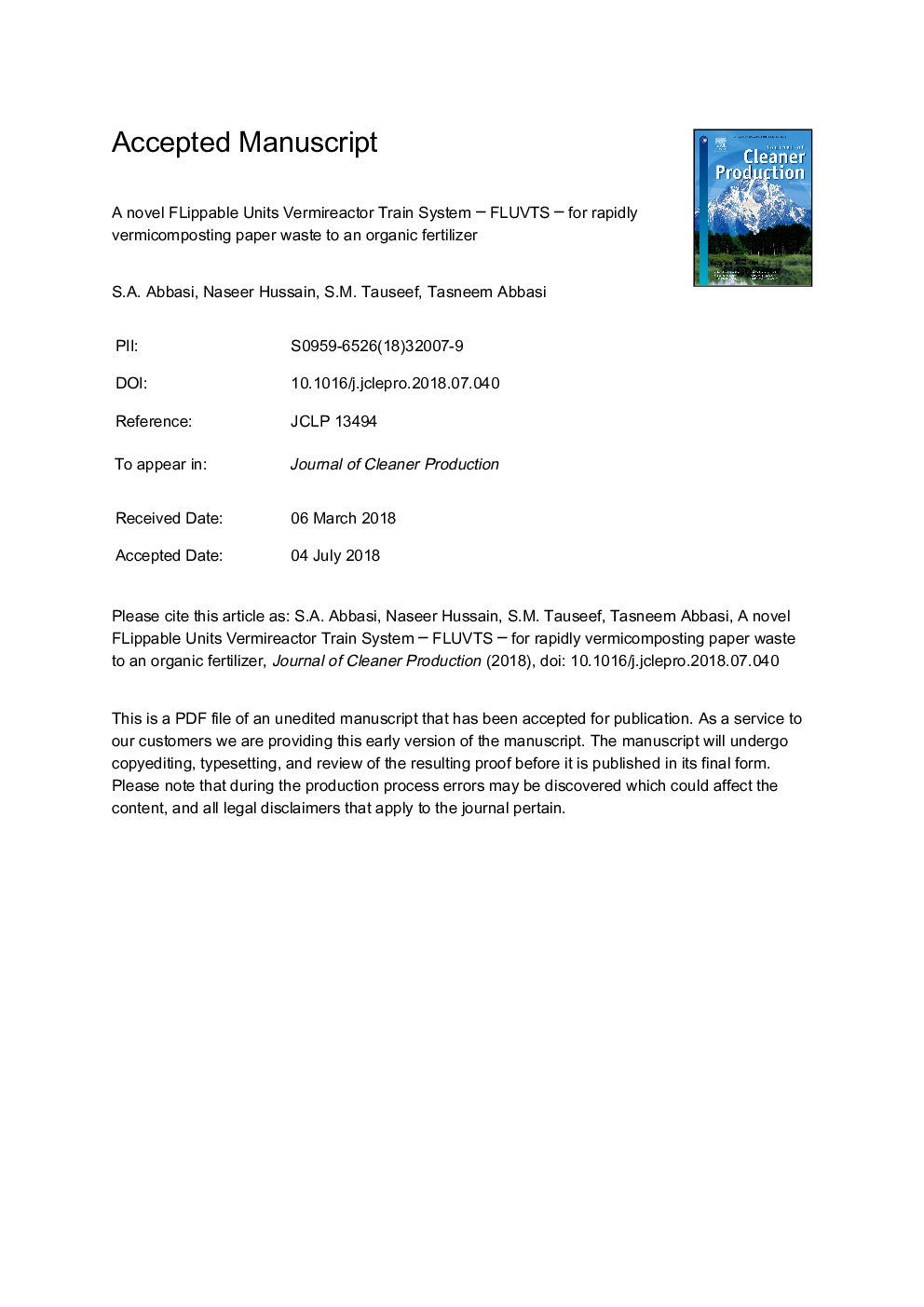| Article ID | Journal | Published Year | Pages | File Type |
|---|---|---|---|---|
| 8093620 | Journal of Cleaner Production | 2018 | 46 Pages |
Abstract
The design and testing of a novel vermicomposting system, acronymed FLUVTS â FLippable Units Vermireactor Train System â is presented. It enables rapid vermicomposting of paper waste without the need of pre-composting and requires animal manure supplementation to the extent of only 10:1 paper: manure mass ratio in contrast to reported systems which must have 50% or more of the feed mass as animal manure. Moreover, the system enables the vermicomposting to be accomplished at a high rate, achieving near-total convertion of feed to vermicast at solid retention times of just 30 days in comparison to conventional systems which take 90-120 days for the same process. Uninterrupted vermireactor operation for 6 months, during which the feed was put in and its vermicompost harvested once in 30 days, demonstrates the robustness and the consistency of the system. The suitability of the paper-waste vermicompost as an organic fertilizer was then tested in terms of it's effect on seed germination and early growth of four food plants chilly (Capsicum annuum), ladies finger, (Abelmoschus esculentus), cucumber (Cucumis sativus), and tomato (Lycopersicon esculentum). In general, the paper waste vermicompost when applied at levels <4.5%, was seen to promote germination success, root and shoot lengths, number and mass of leaves, and chlorophyll and carotene concentrations in all the four species fertilized by it. These effects were statistically significant, at â¥95% confidence level. The paper waste vermicompost also made the soil more plant friendly by making its particle density, porosity, and pH more favourable to plant growth than the control soil. In most cases the beneficial effects of the vermicompost were witnessed when it was applied up to 2.5%. Beyond this level there was negative impact. As elaborated in the paper this dichotomy is common to all fertilizers, conventional or organic. All-in-all the process described in this paper enables generation of an organic fertilizer from paper waste in a rapid and inexpensive manner.
Related Topics
Physical Sciences and Engineering
Energy
Renewable Energy, Sustainability and the Environment
Authors
S.A. Abbasi, Naseer Hussain, S.M. Tauseef, Tasneem Abbasi,
